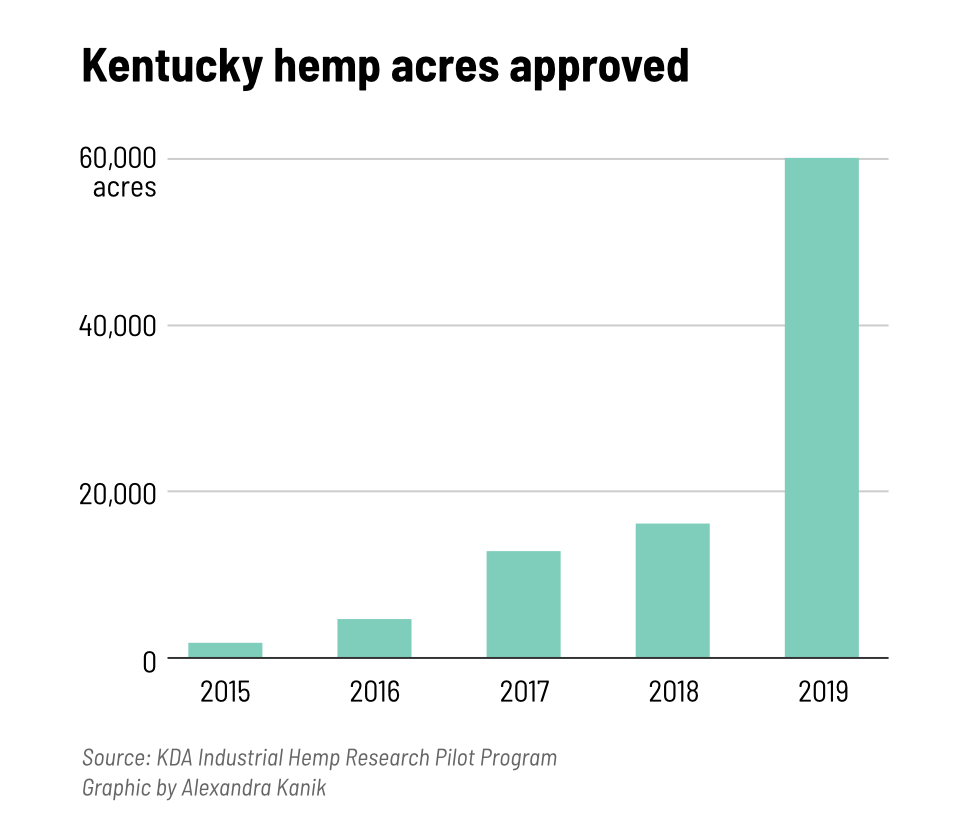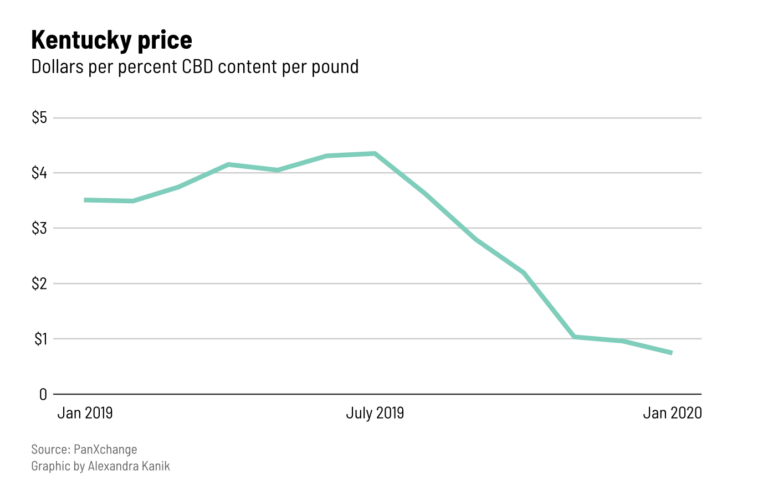News
Over-Hyped Hemp? Amid Price Drop and a Big Bankruptcy, Some Farmers Feel Burned
By: Liam Niemeyer | Ohio Valley ReSource
Posted on:
John Fuller is waiting for another farmer he’s never met before to talk about a situation he never imagined he would be in.
It’s an overcast January day on his farm in west Kentucky, where he grew 18 acres of hemp last year, investing more than $250,000 of his own cash. He’s one of nearly 1,000 licensed hemp growers in 2019 who helped grow Kentucky’s biggest hemp crop since the state reintroduced it, trying to cash in on what could be a $1 billion industry for CBD products made from hemp.
But now, Fuller is wondering how much of that investment he’ll get back.
“There’s some pirates that are out here. Just pirates. Us trying to get with a good, ethical processor has been a real, real challenge for us,” Fuller said.
Later that morning, Bobby Huff arrives after driving more than two hours from Clinton County. By coincidence, both men are pharmacists turned hemp farmers, who saw potential in the alleged medicinal properties of CBD.
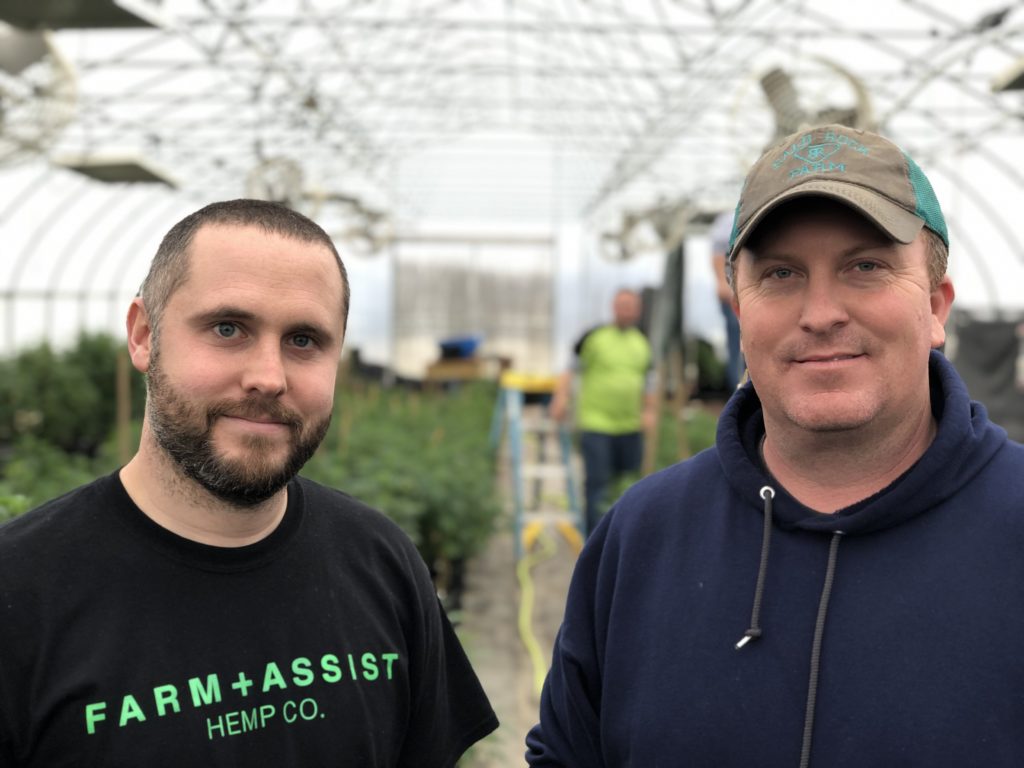
But in November, the local business owners announced they were selling the company to a Nevada limited liability company, DTEC Ventures. The same month, Fuller received emails from the company saying the deal was off: the company said their crop tested positive for heavy metals and couldn’t be accepted. But Fuller was suspicious.
“We went back and tested our soil and tested our product…and our independent labs that we’re sending it to say ‘no heavy metals,’” Fuller said. “So what’s the deal? You know, Bluegrass has stopped accepting hemp?”
One of the new operators of the company in an email to Fuller then claimed the company couldn’t accept farmers’ hemp because of “increased scrutiny” from state and federal regulatory agencies. When Fuller reached out through email to the Kentucky Department of Agriculture to verify this claim, a KDA official said there had been no regulatory change.
The contracts that Huff, Fuller and dozens of other farmers had signed — promising potentially around $40 per pound of CBD-rich hemp for thousands of pounds of their harvest — were now just pieces of paper.
“It really makes me angry,” Fuller said. “I can get by with my day job if this whole farming thing tanked, but the farmers that used hemp in place of tobacco for last year, they’re not going to get paid for their crop.”
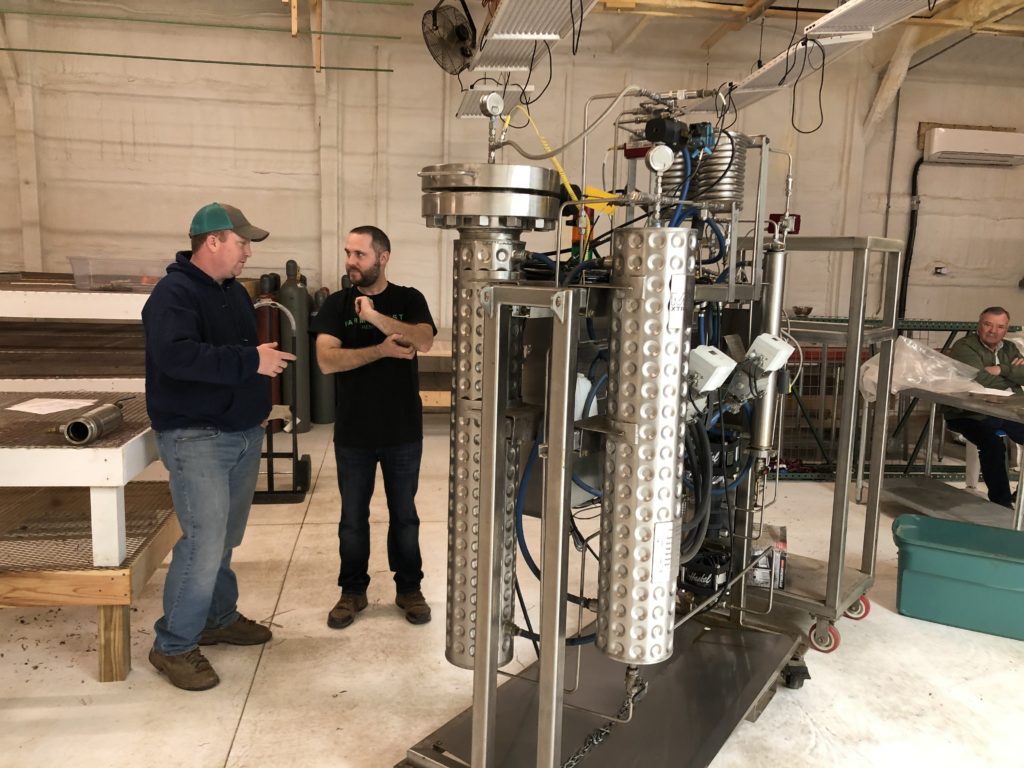
For many other farmers in Kentucky and across the country, the hopes of a financial windfall from hemp to be a saving grace from faltering markets in tobacco, soybean and corn, has hit a harsh reality. Amid boundless rhetoric touting the potential of the new crop that many still see, some farmers suspect they’re facing unfair treatment and empty promises, wondering who and what they can trust.
Boom To Bust
With the federal government legalizing growing hemp in the latest Farm Bill, Kentucky saw a rush of interest in cultivating the crop, particularly to make CBD products. The 972 hemp growers licensed last year were over four times more growers than in 2018. The number of hemp acres harvested also quadrupled, up to 24,900 acres, and 92 percent of those acres were grown for CBD products.
Several states also grew hemp for the first time last year, with other leading hemp states including Colorado and Montana seeing a spike in their production. That large supply led to a nationwide glut of hemp. CBD-rich hemp is often sold by the percent of CBD measured in each pound of hemp.
“When we started out 2019, I had $5 per percent CBD. Fast forward to the end of 2019. Now, we’re looking at less than $1 per percent CBD. That’s a huge change,” said Tyler Mark, assistant professor of production economics at the University of Kentucky.
Mark said that glut has led to a subsequent price crash for CBD-rich hemp, and the substantial profit margins expected have now disappeared for many.
Colorado-based analytics firm PanXchange tracked the average selling price of hemp at $4.35 per percent CBD in each pound of hemp in July of 2019. By January, the price was at 74 cents. Mark said the crash is also partially because the true demand for CBD products and hemp isn’t yet known.
But because of that uncertainty, some hemp processing companies could be struggling to fulfill contracts signed with farmers when hemp markets were booming.
“If the processors did not have a contract locked in to sell those final products so that they could afford those types of contracts that they originally signed at the beginning of the year, they’ve got definite cash flow problems,” Mark said.
Another prominent Kentucky hemp processing company has struggled to pay its bills in what’s turned into a prolonged court dispute over an unfinished construction site.
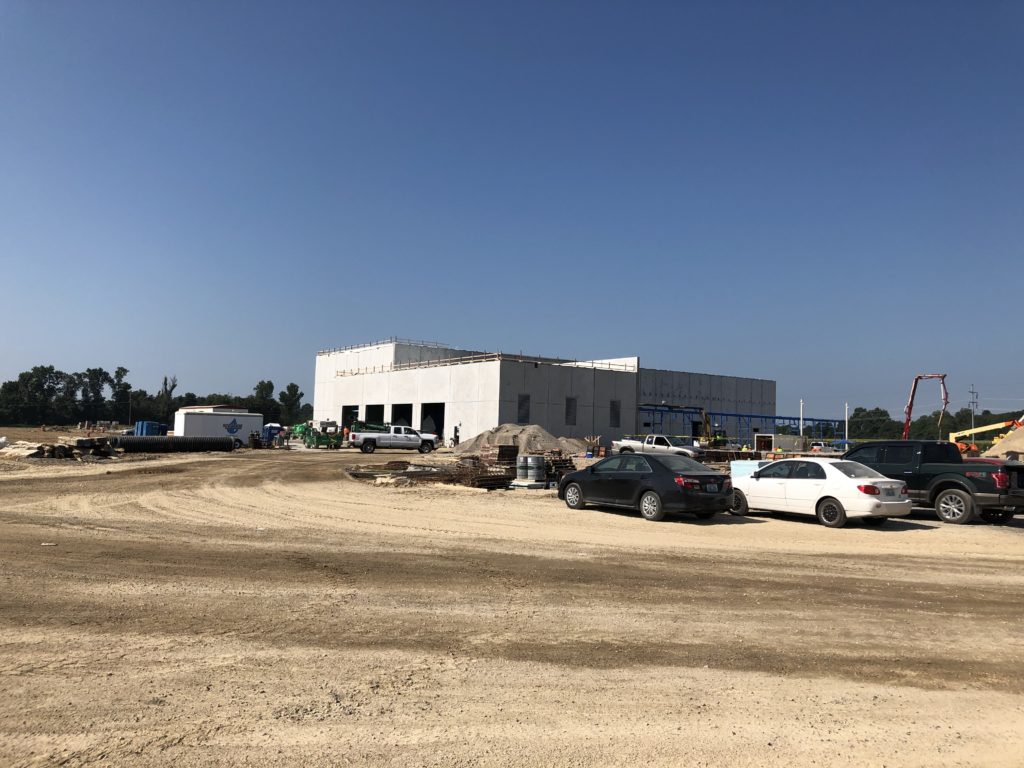
GenCanna, based in Winchester, Kentucky, announced in late 2018 it was investing $40 million to build a second hemp processing facility in Graves County, signing up farmers throughout the state to grow hemp for the company.
As construction continued at the site, the first lien against the property was filed in early September: the Hannan Supply Company in Paducah alleged their company was owed over $250,000 for construction materials and labor.
Dozens of construction-related liens have been filed against the facility site since then, ballooning to more than $32 million combined as of late December. GenCanna also had to layoff 60 employees last year, after being a title sponsor of the Kentucky State Fair, buying billboard space across west Kentucky, and sponsoring a statewide tour for Kentucky Sports Radio.
In late January, construction company Pinnacle, Inc., based in Benton, Kentucky, pressed for GenCanna to enter Chapter 11 bankruptcy because of the overdue bills. GenCanna relented on Thursday, filing for bankruptcy in federal court.
“[GenCanna was] trying to float too much money and grow way too quickly. I think that is probably one of the biggest problems in the hemp industry is greed, and not working for what a company is worth,” said Tate Hall, President of the Kentucky Hemp Industries Association. “They should have never announced or upgraded that facility if it wasn’t going to be built in time or they couldn’t finance the building.”
Hall said GenCanna’s situation isn’t unique, as some processors in the state and elsewhere in the country expanded too fast for the hemp market to stabilize. He said that left contracted farmers in many instances out of luck in getting paid. In the case of GenCanna, he’s concerned construction companies with more resources may be paid back by GenCanna before contracted farmers.
“Just because they filed ‘Chapter 11’ don’t mean anything with GenCanna. That’s a long way from being over, and I can guarantee you those contractors are not going away. You can’t just wipe your debt off,” Hall said. “I’m 100 percent for those contractors and farmers.”
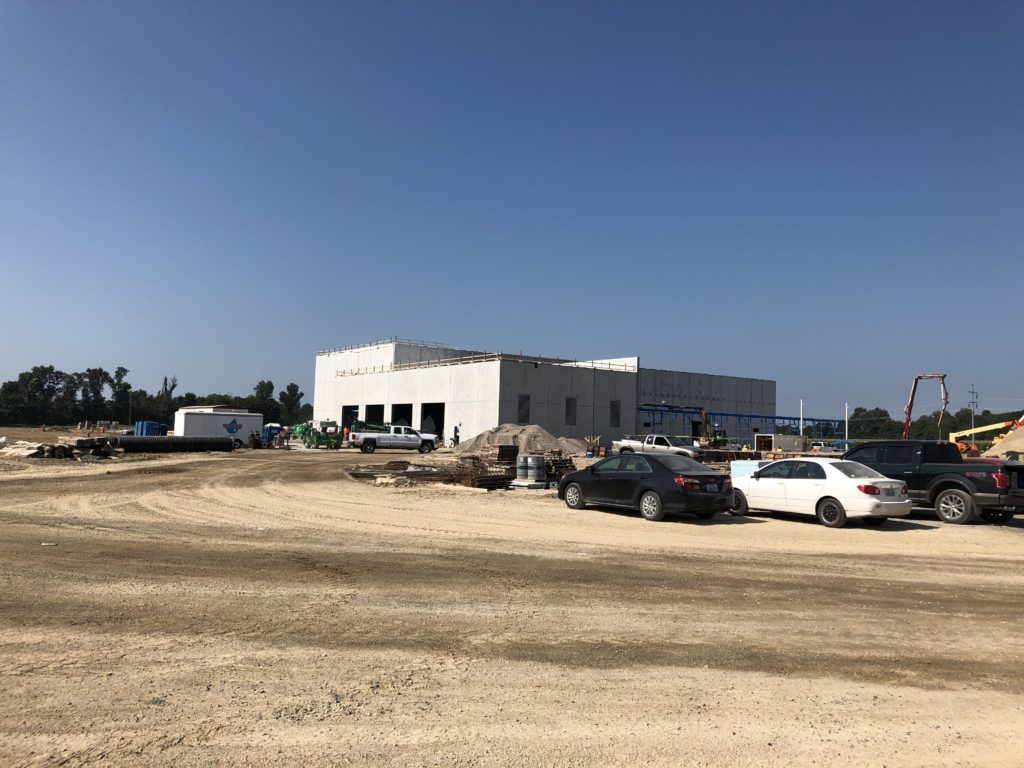
Acela CBD in Maysville, Kentucky, is another hemp processor where farmers are concerned about their contracts.
“If I’m going to go down, they’re going to go with me,” said Marty Voiers, who grew two acres of hemp in Lewis County for Acela. “My dad said ‘you better be careful doing it.’ He warned a bunch about it. I didn’t listen to him.”
Voiers said he took out a line of credit to pay for labor and infrastructure to grow his hemp, including a new water line. While he said he did get paid for a single bag of hemp, because there isn’t any language in his contract on when farmers are required to get paid, he’s not sure when his full payment will come for the more than a dozen of other bags of hemp he harvested.
Kevin Burton, another farmer in Mason County who grew 1.5 acres of hemp for Acela, said he’s considering selling other parts of his farm if he doesn’t get the full payment he’s expecting.
Burton said in his experience raising cattle, stockyards have escrow accounts to pay farmers immediately when they bring cattle in, instead of waiting until cattle are marketed.
“I may have to sell some cows or sell some equipment. I got payments I have to make.” Burton said. “They contract you to raise the crop. You raise the crop and deliver it, and they say ‘well, you’re going to have to wait on your money.’”
He believes something similar should be set up for the hemp, and that farmers shouldn’t have to wait for payment. “That’s a bad job. That should not happen,” he said.
Acela CEO Andrew Culbertson confirmed that contracts with their more than 100 growers did not have language on when payments have to be made. He said their company is still paying out contracts to farmers.
But he said a reason the payments to farmers might be delayed is because of the glut in supply. Other competitors to Acela are also trying to sell hemp in an already flooded market, making it difficult to sell Acela’s hemp and reimburse farmers.
“We cut checks last week, we’re cutting checks this week, and I’m sure we’ll be cutting checks next week,” Culbertson said.
Over-Hyped?
As contract disputes and court battles continue, some farmers feel led on by processors, the Kentucky Department of Agriculture, and other stakeholders in the industry.
“Ain’t that one hell of a selling point for your industry if you’re going to go out here and spout off all this stuff about how it’s gonna be the agricultural savior of the state,” said Jamie Shaddock, a Shelby County farmer contracted with Bluegrass Bioextracts. “And then at the end of it you say ‘but don’t invest more than you can lose.’ Now what kind of bullshit is that?”
Shaddock said he doesn’t raise burley tobacco anymore because the prices for the crop have stagnated for decades, and he isn’t sure what he can raise now that will be profitable. He’s currently sitting on 25,000 pounds of harvested hemp that he’s invested at least $140,000, weighing his options.
The Burley Tobacco Growers’ Cooperative in August voted to purchase $1 million in hemp to sell CBD oil, as a way to diversify and save the faltering organization. Now, an attorney is pushing to have the cooperative dissolved and $30 million of its assets distributed to growers.
Others in the turbulent industry also believe hemp’s financial potential was overhyped and the risk underplayed, but the answer of who is responsible is less clear.
“That hype came from all over the place. I mean, even Kentucky legislators and regulators who were excited about hemp maybe inflated the value of what the crops would be,” said Katie Moyer, owner of hemp processor Kentucky Hemp Works and member of the state industrial hemp advisory board.
Moyer believes that farmers, processors, and the Kentucky Department of Agriculture all had a role to play in overhyping the industry.
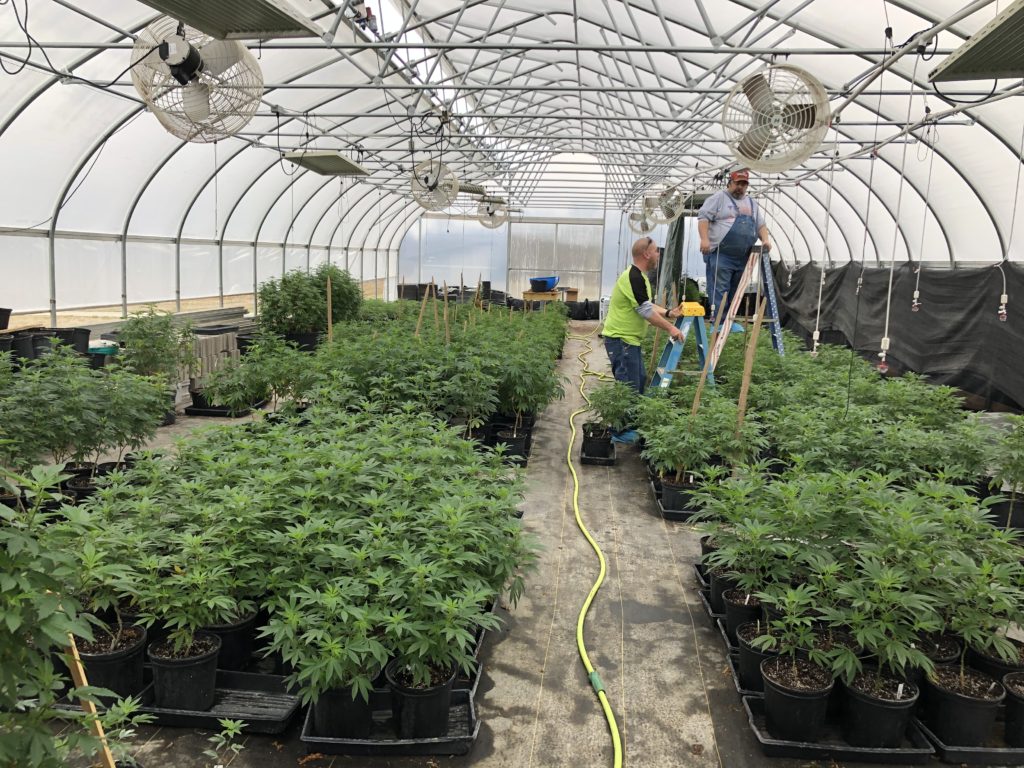
“Some of that fault does lie with the regulators and KDA, who forced us into having to sell to processors,” Moyer said. “Because we can’t take that crop straight to market, we can’t just go sell hemp as flower, as animal feed. There’s no backup plan.”
Sale of raw hemp is prohibited because police are concerned the crop may be mistaken for its botanical cousin, marijuana. But Moyer said she still is optimistic the industry has a positive future ahead of it, and that the industry will stabilize on its own.
“In the free market, those processors that screw over one farmer, or they dropped the ball for one farmer, they won’t ever get another contract,” she said. “I think if we saw less government regulation and less intervention in the market, we would have less of these problems to begin with.”
Kentucky Agriculture Commissioner Ryan Quarles said he understands the anger that hemp farmers are feeling, and that his department is considering ways regulators could force processors to obligate contracts. Quarles instead puts the blame for industry turmoil on federal regulators.
The U.S. Food and Drug Administration has been in the process of considering how to categorize CBD, whether as a more tightly regulated pharmaceutical or as a nutritional supplement. That decision has substantial financial implications for the industry.
“The biggest cause of this is the federal government’s lack of response towards giving an indication of how they’re going to regulate this product,” Quarles said. “We’re entering year number seven of products being on the shelf, and the FDA has yet to give us a framework in which our processors, innovators and entrepreneurs can expect to operate.”
Quarles also said the dramatic crash in hemp price is a part of the “price discovery” process that comes with a new industry. Once the true demand is found for CBD, then the industry can more easily stabilize. He said his department did emphasize risk appropriately, particularly in orientation sessions he said that licensed farmers and processors take.
But little of that matters to farmer Bobby Huff, who’s looking at the potential for big losses.
When Quarles ran for re-election as Agriculture Commissioner last year, he advocated repeatedly for the potential of hemp. Huff feels like that campaign rhetoric led on farmers like him.
For now, he’s done with it.
“It’s going to shit,” Huff said. “I’m not gonna make anything. There’s no doubt about it.”
This story has been updated to clarify Marty Voiers has received partial payment from Acela.


